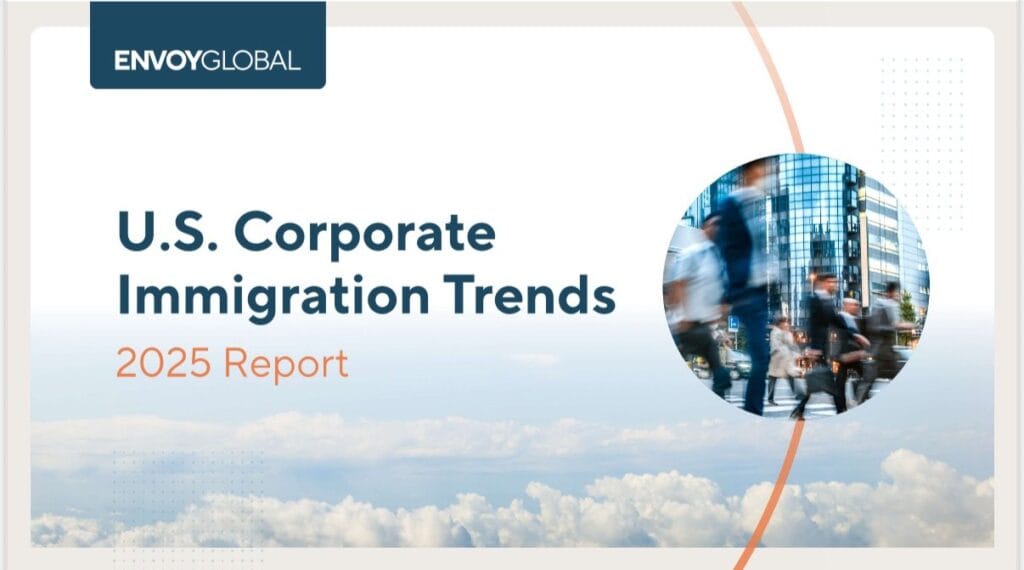Global immigration news round-up
This week, the Global Immigration team at Smith Stone Walters would like to highlight the following recent updates from New Zealand, China, Malaysia, Canada, India and Saudi Arabia.

New Zealand: Upcoming changes to student visa work rights
On Monday 14 July 2025, the Government announced the International Education Going for Growth Plan. As part of this plan, Immigration New Zealand (INZ) is changing some immigration rules.
In November 2025, INZ will be:
- increasing the number of hours eligible students can work while holding a student visa, from 20 to 25 hours a week
- extending eligibility for in-study work rights to all tertiary students on approved exchange or Study Abroad programmes, including 1-semester courses
- clarifying that those who change their education provider or lower their level of study will need to apply for a new student visa, not just a variation of conditions.
Increased in-study work hours
From 3 November 2025, eligible tertiary and secondary school students will be allowed to work up to 25 hours per week during the semester – an increase from the current 20-hour limit. This will apply to all new student visas granted from that date, even if the application was submitted earlier.
Those who already have a student visa with a 20-hour work limit and want to work up to 25 hours will need to apply for a variation of conditions or a new student visa. The relevant immigrations fees will apply.
Many student visas already allow full-time work during summer and other scheduled breaks. Holders of these visas might not need to apply for the extra five hours immediately. They can choose to apply for the variation of conditions after summer, if their visa is still valid.
School students in years 12 and 13 require parental and school permission for 20 hours in-study work rights during the year. This permission will still be a requirement with the increase to 25 hours a week.
There are currently 40,987 student visa holders with in-study work rights. Of these, 29,790 visas are set to expire on or before 31 March 2026, while 11,197 will expire after that date.
Not all visa holders are expected to apply for the additional five hours of work rights. Some may choose to wait until their next visa application to include the change, rather than pay to vary their current visa conditions. Others may be nearing the end of their studies and therefore unlikely to apply for the extra work hours.
Subject to Cabinet agreement, INZ is exploring further changes, including a new short-term work visa for some vocational graduates and streamlined visa processes.
China / Malaysia: Visa-free agreement takes effect
On 17 July 2025, the mutual visa waiver agreement between the governments of China and Malaysia took effect.
According to the agreement, people holding valid ordinary Chinese or Malaysian passports can enter, exit, transit and stay in the other country visa-free for up to 30 days (cumulatively no more than 90 days per 180 days) for the purpose of tourism, visiting relatives and friends, business activities, exchange visits, medical care and international transportation (crew).
Those who need to stay in the other country for more than 30 days or to settle in the country, or to engage in activities such as work, study or journalism (subject to prior approval), must apply for a corresponding visa before entering the other country.
The visa waiver agreement was signed on 16 April 2025.
Canada: Parents and Grandparents Program intake opens in late July
Immigration, Refugees and Citizenship Canada (IRCC) has announced that invitations to apply for sponsorships under the Parents and Grandparents Program (PGP) will be sent to interested potential sponsors from 28 July 2025, over the course of approximately two weeks.
Earlier this year, IRCC announced that it intends to accept up to 10,000 complete applications for sponsorship under the PGP in 2025.
IRCC encourages anyone who submitted an interest to sponsor form in 2020, but has not yet received an invitation to apply, to check the email account they provided in 2020, including their junk and spam folders.
Due to the number of forms remaining in the pool of interest to sponsor submissions from 2020, IRCC will send invitations to apply to potential sponsors from that pool instead of opening a new interest to sponsor form.
Those invited to apply as part of the 2025 intake can submit their applications electronically through the Permanent Residence Portal or the Representative Permanent Residence Portal.
Those who are not invited this year may consider having their parents or grandparents apply for a super visa, which is a multiple-entry visa that is valid for up to ten years. Super visa holders can stay in Canada for five years at a time, with the option to extend their visit by up to two years at a time without leaving the country.
India: e-Visa launched for Kuwaiti nationals
On 13 July 2025, the Embassy of India in Kuwait announced that India extended the eVisa facility to Kuwaiti nationals, effective immediately.
The e-Visa is available for a variety of purposes including tourism, business, conferences, medical or traditional medicine (AYUSH) treatment and medical and traditional medicine attendants. The eVisa has a longer duration at a lower visa fee than the consular paper visa, which will, however, continue to be available.
Biometrics are captured at the port of arrival in India, so there is no requirement to visit an Indian consular application centre. E-Visa processing generally takes three to four days.
The e-Visa is valid for entry through 32 airports and five seaports, and the holder can exit through any immigration checkpoint.
Saudi Arabia: New skill-based classification of work permits
On 6 July 2025, the Ministry of Human Resources and Social Development (MHRSD) announced a decision and published guidelines re-classifying work permits into three main skill categories: high-skill, skilled, and basic.
Employers in the country will have to classify their existing and future non-Saudi workers into the three skill categories according to the published criteria, ensuring that professional accreditation, duties and wages align with official occupational categories and job titles.
These categories have been identified based on the Saudi Standard Classification of Occupations (SSCO) and specific classification criteria, including educational qualifications, professional experience, professional skills, wages and age.
A specific number of points are allocated to each criterion based on the applicant’s performance. If the total points earned by the applicant exceed a certain threshold set by the Ministry, they will qualify for a high-skilled work permit.
This system allows applicants to compensate for not meeting some criteria with stronger performance in others. For example, if an applicant has extensive experience but does not meet the education/experience requirements, they can still qualify for a high-skilled work permit based on their performance in the remaining criteria.
The nine primary occupational groups of the SSCO are as follows:
- Managers;
- Specialists;
- Technicians and Associate Professionals;
- Clerical Support Workers;
- Service and Sales Workers;
- Skilled Agricultural, Forestry, and Fishery Workers;
- Craft and Related Trades Workers;
- Plant and Machine Operators and Assemblers;
- Elementary Occupations.
The criteria for the three categories are as follows:
High-Skilled:
a. Occupational groups 1 to 3;
b. Wage not less than the minimum threshold for the High-Skilled Level;
c. Professional accreditation for the relevant occupational group;
d. The worker must pass the points-based system set by the Ministry for this level, which is based on three main criteria: educational qualifications, Professional experience, and wages.
Skilled:
a. Occupational groups 4 to 8:
b. Wage not less than the minimum threshold for this skill level;
c. Professional accreditation for the relevant occupational group;
d. The profession may fall within one of the main occupational groups (1 to 3) if the worker does not meet the minimum wage threshold set for the High-Skilled Level.
Basic:
a. Occupational group 9;
b. If applicable, professional accreditation for the occupational group;
c. Age must not exceed 60 years;
d. The profession may fall within one of the main occupational groups (1 to 8) if the worker does not meet the minimum wage threshold set for the Skilled Level.
The new system is being launched in two main phases:
- Phase 1: Classification of work permits for workers currently employed in Saudi Arabia, effective from 5 July 2025;
- Phase 2: Classification of work permits for incoming foreign workers, effective from 3 August 2025.
The classification process for both phases will be automated, with the skill level of work permits appearing directly through the establishment’s account on the Ministry’s systems (Qiwa Platform). Workers whose skill level is not accurately classified can submit a request to correct their skill level. If they meet the specified criteria for the desired skill level, their classification will be updated accordingly.
A better way to manage global immigration
Smith Stone Walters is now part of Envoy Global, the leading corporate immigration services provider committed to delivering a better way for companies to manage global immigration.
This partnership will greatly enhance our global footprint and enable us to meet the growing needs of our clients even more effectively.
If you would like to find out more about the enhanced level of global immigration services now available to your business, please contact us today.















